The table below shows foods which you can’t give to babies before they’re 6 months old, and when they should be introduced. It’s important you don’t give any of these foods before 6 months, in case your baby has an allergic reaction or their tummy can’t handle it.
Sometimes mums and dads remove foods from their baby’s diet for various reasons. It’s always better to talk things over with your health visitor before making any big changes to your baby’s diet.
Here are some foods and information on when they can be introduced:
Dairy products
(Includes cheese, plain fromage frais, custard, milk sauces and plain yoghurt.)
For babies over 6 months.
Cow's milk may be used in cooking but not to drink until at they are at least one year old.
Goat's and sheep's milk are not suitable for those under 12 months and must be pasteurised.
Cows’ milk does not give all the nutrients that children aged under one require. It’s also low in iron and high in sodium, and lacks the essential energy levels that babies need.
Cereals that contain gluten
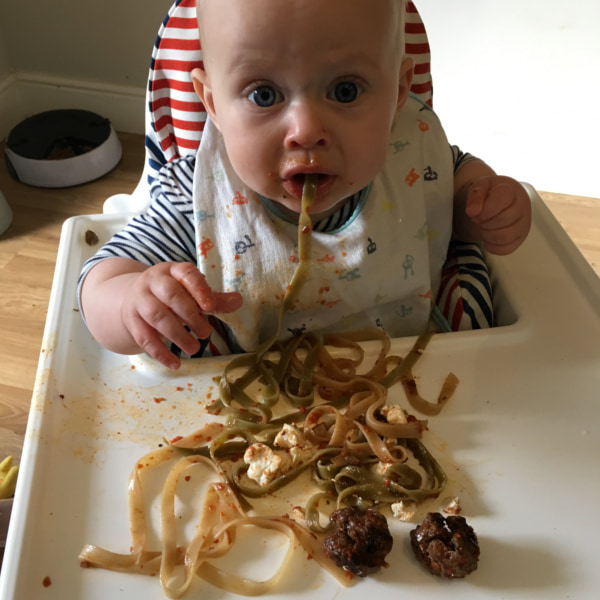
(For example: wheat, rye, barley and oats.)
Suitable for babies over 6 months.
Avoid giving rusks, pasta, bread, flour, and breakfast cereals containing gluten, including porridge, to babies under 6 months old.
Follow-on-formula, second-stage formula
For babies over 6 months.
Not recommended or needed. Continue breastfeeding or using first formula as there is no medical or nutritional benefit from follow-on or second-stage formula.
Your wee one probably won’t sleep any longer on second-stage or follow-on formulas.
Citrus fruits (oranges, grapefruit) and juices
For babies over 6 months.
Juices aren’t recommended for babies because they have too much natural sugar but if you do want to give them they should be provided in a 50:50 dilution and kept to meal times.
Fruit drinks (like fruit shoots) are never recommended for babies and should be avoided.
Soft berries (raspberries and strawberries)
Suitable for babies over 6 months.
Fish and shellfish (for example prawns)
For babies over 6 months.
Children under 16 years should avoid eating shark, marlin and swordfish. Probably unlikely to be on the kitchen table but useful to know!
Eggs
Eggs can be given before 6 months as soon as they start eating first foods.
Cook eggs until the yolk and white are solid, unless they have the British Lion stamp which means runny yolk is fine.
However, if your child already has a known allergy, such as diagnosed eczema, a food allergy, or a family history of food allergies, you should talk to your GP, health visitor or medical allergy specialist before you give eggs, peanuts or foods containing peanuts for the first time.
Peanuts or food containing peanuts e.g. peanut butter
You may have heard the previous advice to avoid giving a child food containing peanuts before 3 years of age if there is a history of allergy in the child’s family (such as eczema, hayfever, food allergy or other types of allergy). The advice has now changed - the latest research shows that introducing eggs and peanuts as soon as you start first foods will reduce the chances of your child developing a peanut or egg allergy.
However, if your child already has a known allergy, such as diagnosed eczema or a food allergy, you should talk to your GP, health visitor or medical allergy specialist before you give eggs, peanuts or foods containing peanuts for the first time. If you’re introducing nuts, peanuts or seeds from 6 months, they should be in paste form or very finely chopped to avoid choking.
Whole nuts and seeds
For babies over 6 months.
Only low salt nut pastes or butters or finely chopped to avoid choking. Not whole nuts.
Soya products (for example tofu, soya yoghurt)
For babies over 6 months.
Yes, soya can be eaten. Soya-based infant formula should only be used on the advice of a health professional for rare medical conditions. Soya baby formula is not usually vegan.
Steer clear of other soya-based drinks until your baby is 12 months old. Also, it’s helpful to note that the vitamin D in soya milk is usually not vegan.
Liver and liver products (for example pate)
For babies over 6 months.
Liver can be eaten. However, if you’re giving your baby infant formula or vitamins, you should only give your wee one small amounts of liver – otherwise they might get too much vitamin A.
Honey
Only feed your baby honey when they reach 12 months old.
Feeding and allergies
Babies are more likely to develop allergies if there’s a family history of eczema, asthma or hay fever. If you’re worried your baby might develop a food allergy, it’s a good idea to start them on foods that are most likely to cause food allergies one at a time. Just make sure you start with a small amount, and not before your baby is 6 months old. These foods are:
- celery
- peanuts
- nuts
- seeds
- eggs
- soya
- wheat (and other cereals that contain gluten such as rye, barley and oats)
- fish and shellfish
- any milk other than breast milk or infant formula.
If your baby develops an obvious reaction, you should tell your health visitor or GP who will advise on next steps. Common symptoms include one or more of the following:
- coughing
- dry, itchy throat and tongue
- itchy skin or rash
- diarrhoea and/or vomiting
- wheezing and shortness of breath
- swelling of the lips and throat
- runny or blocked nose
- sore, red and itchy eyes.
A severe and immediate allergic reaction such as anaphylaxis, which requires urgent medical care, is obvious. Medical staff will advise on how to check for possible causes and avoid repeat episodes. Some foods, such as honey, should be avoided altogether until your baby is over 12 months.
For the most up-to-date advice, ask your health visitor for a copy of the revised NHS Health Scotland leaflet, Fun First Foods. You can find out more about food allergies and what to do if your child has an allergic reaction on the NHS Inform website.
Have a look at our page on first food recipes for some great first menu ideas.
Tips from parents
"They will make up their own minds but if they’re making faces at a certain food keep trying because they don't know any different."
 Activities & Play
Activities & Play Behaviour
Behaviour Childcare
Childcare Development & Growing Up
Development & Growing Up Family, Friends & Relationships
Family, Friends & Relationships Feeding Your Baby
Feeding Your Baby Food & Eating
Food & Eating Health & Safety
Health & Safety Mental Health & Wellbeing
Mental Health & Wellbeing Money & Work
Money & Work Online Behaviour & Safety
Online Behaviour & Safety Pregnancy & First Days
Pregnancy & First Days School & Education
School & Education Sleep
Sleep

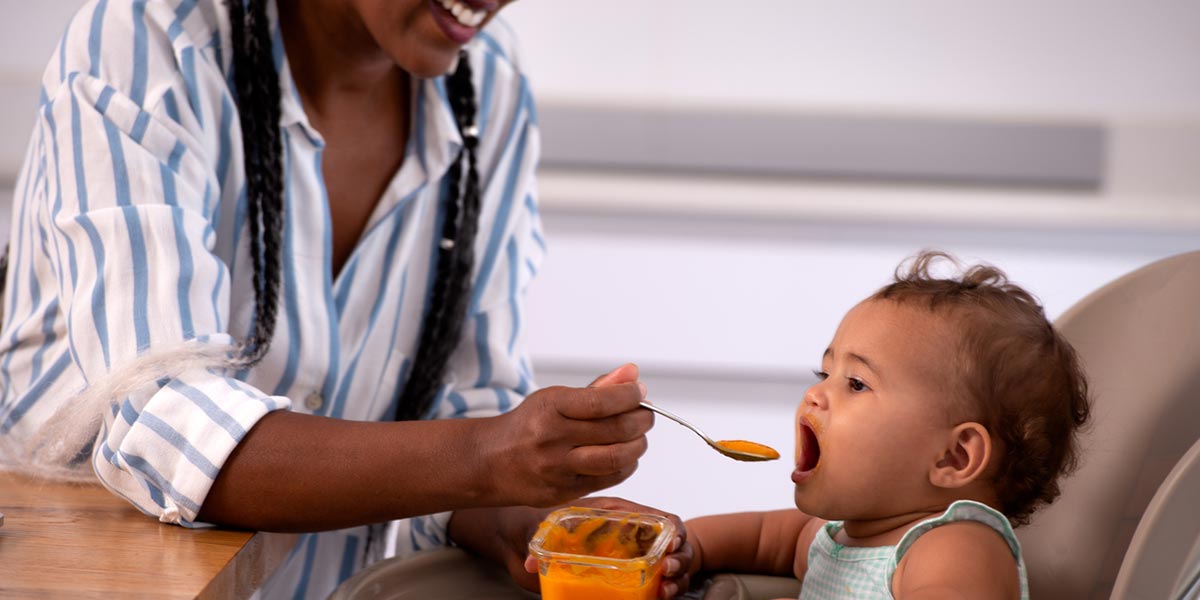
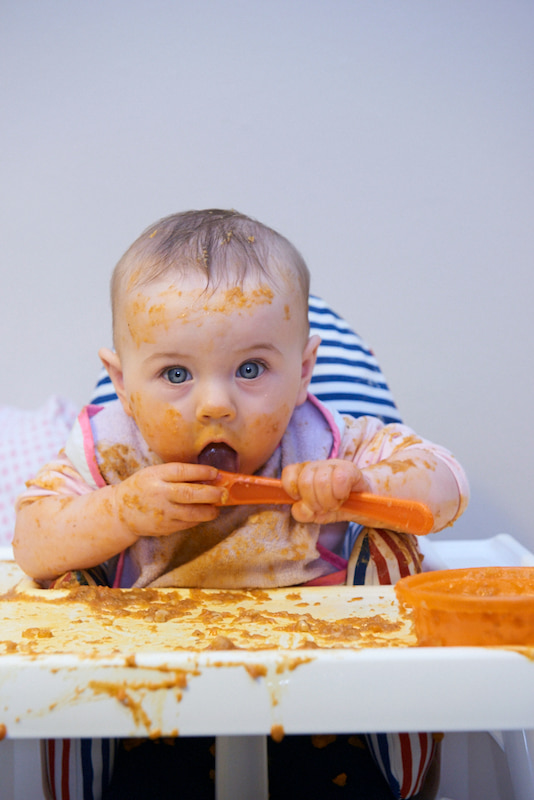
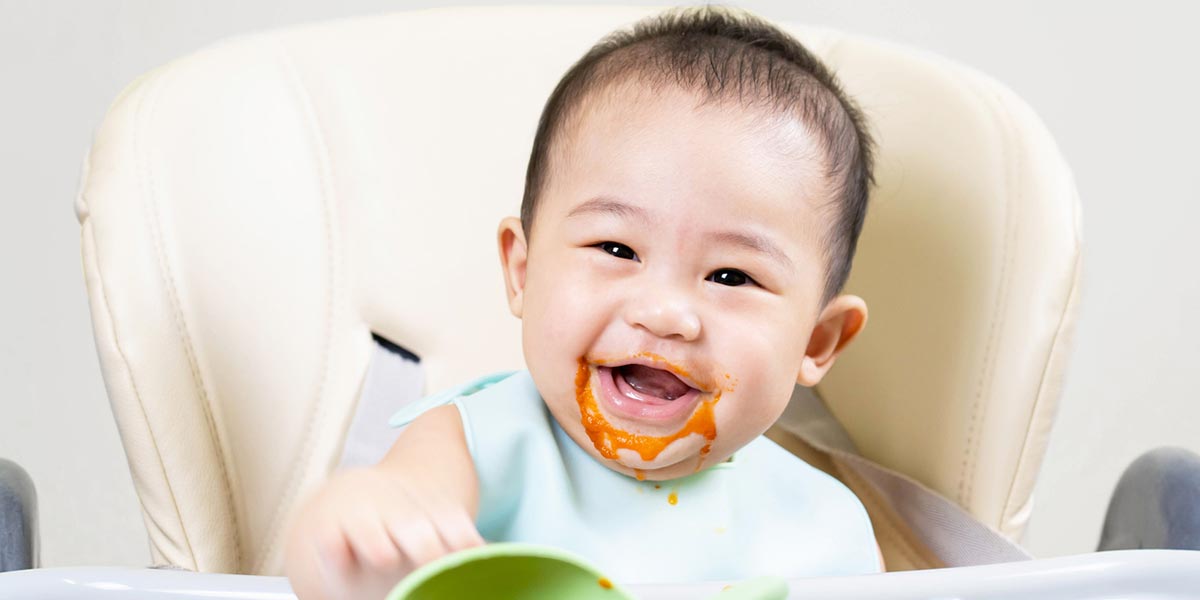
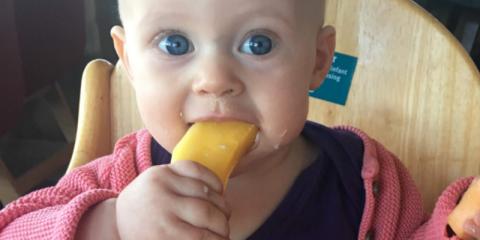

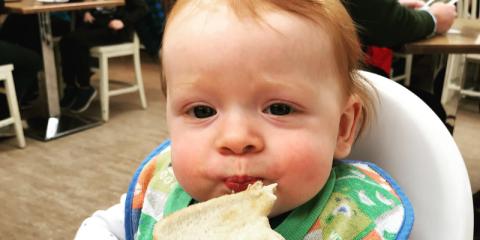


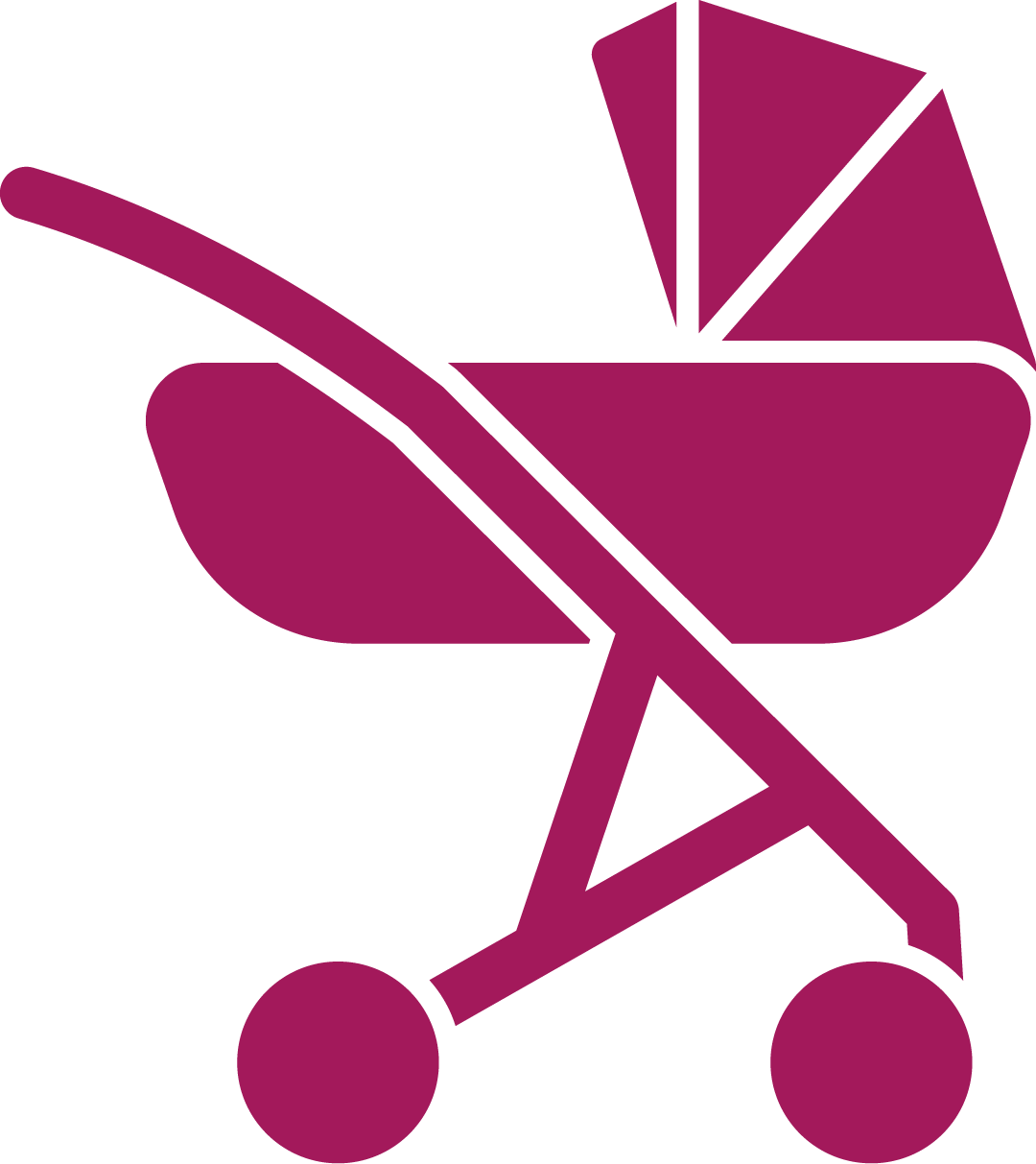 Pregnancy & First Days
Pregnancy & First Days
 Sleep
Sleep